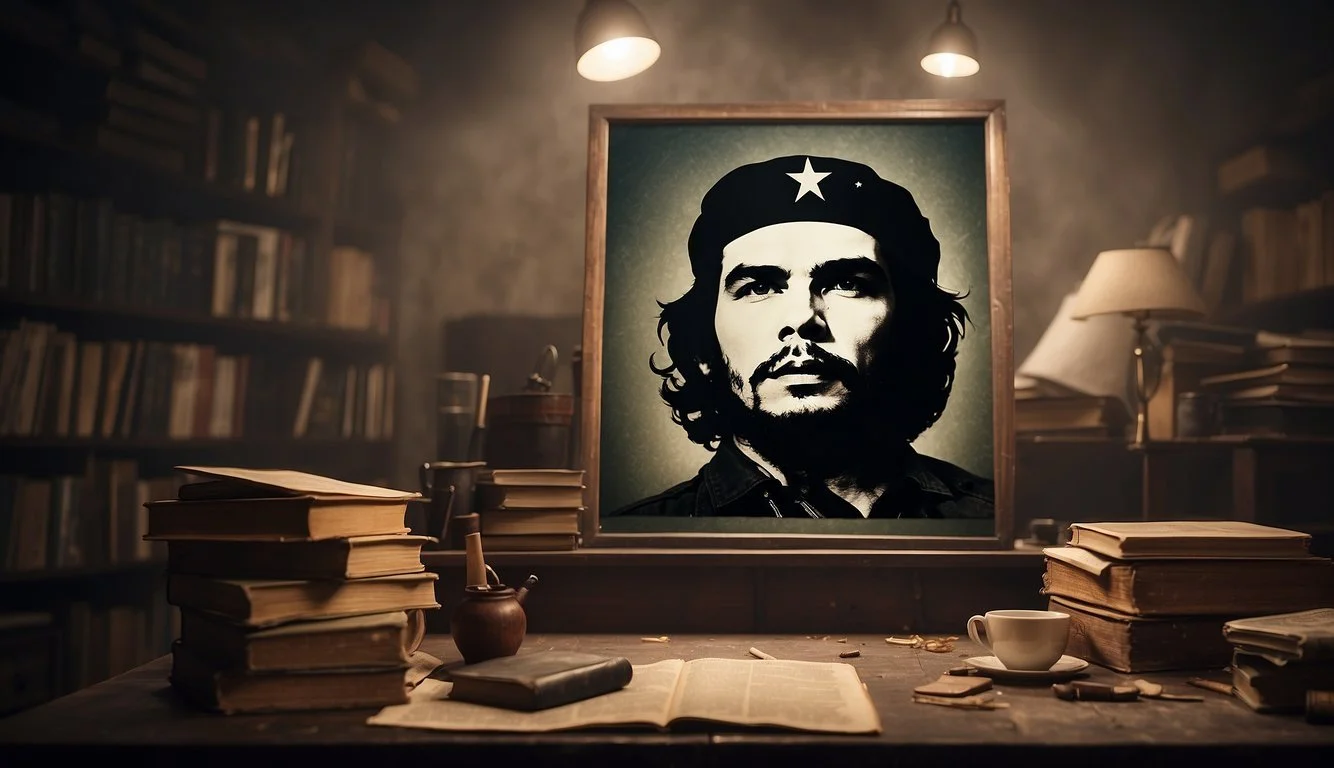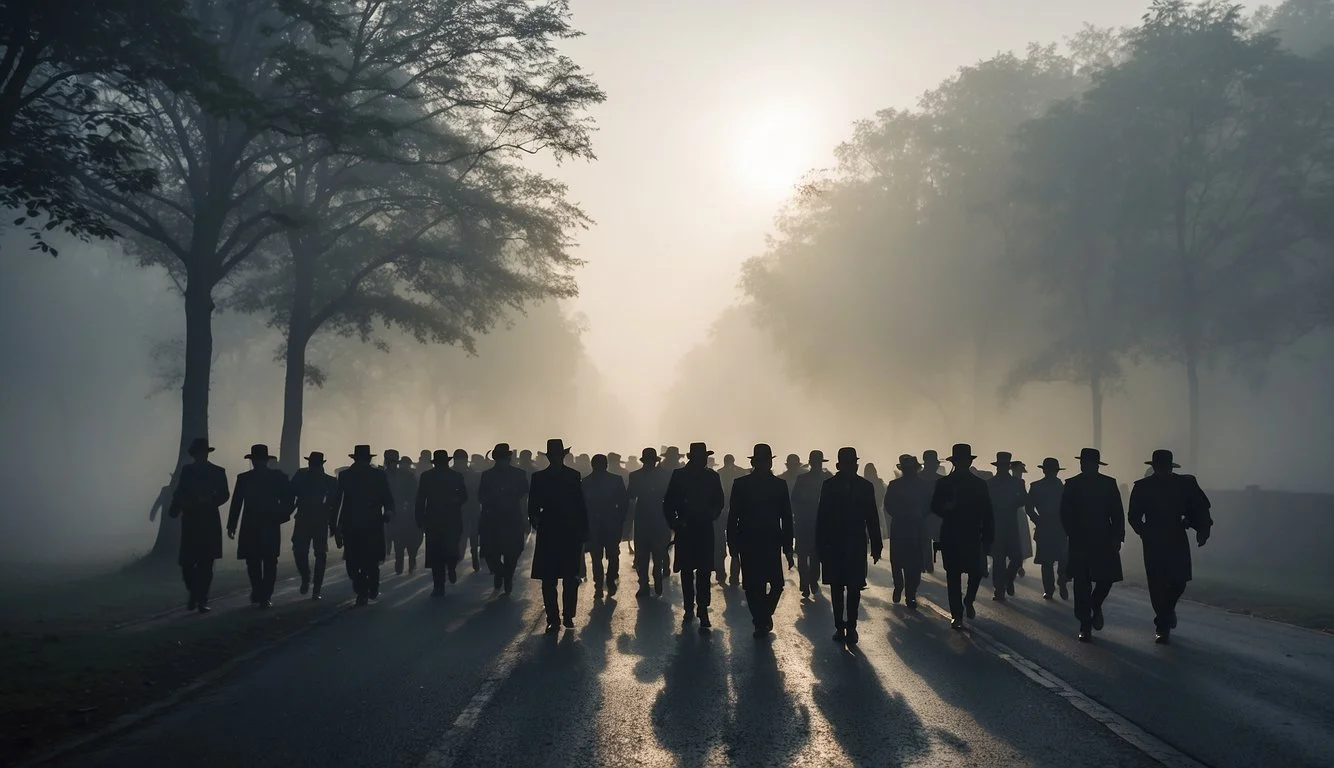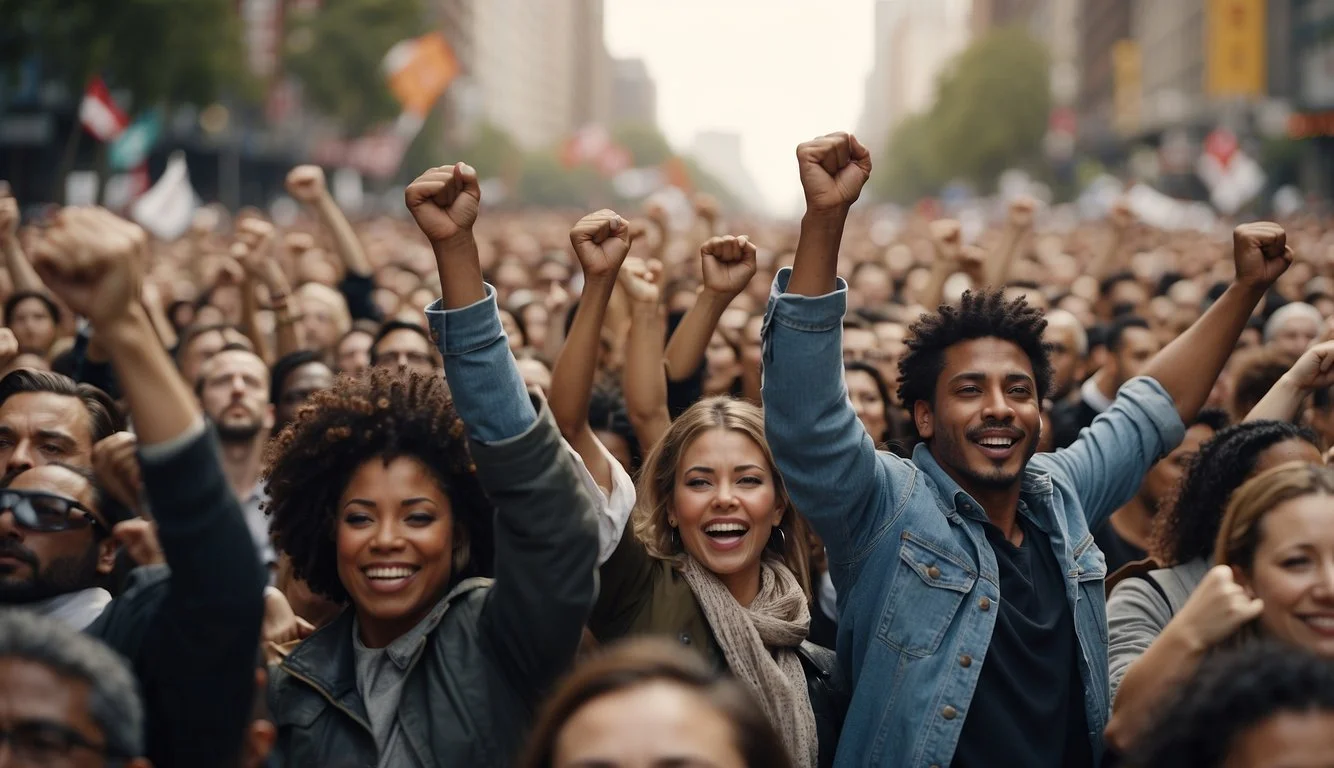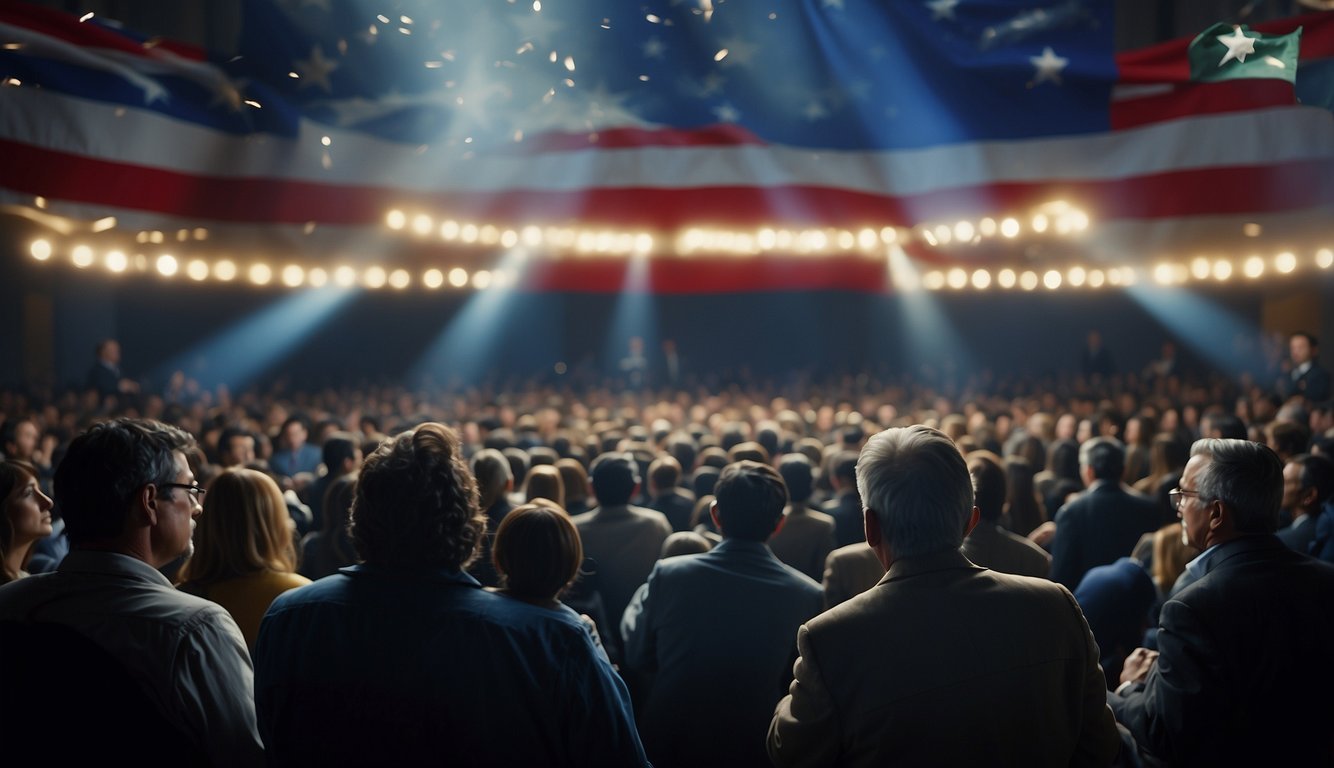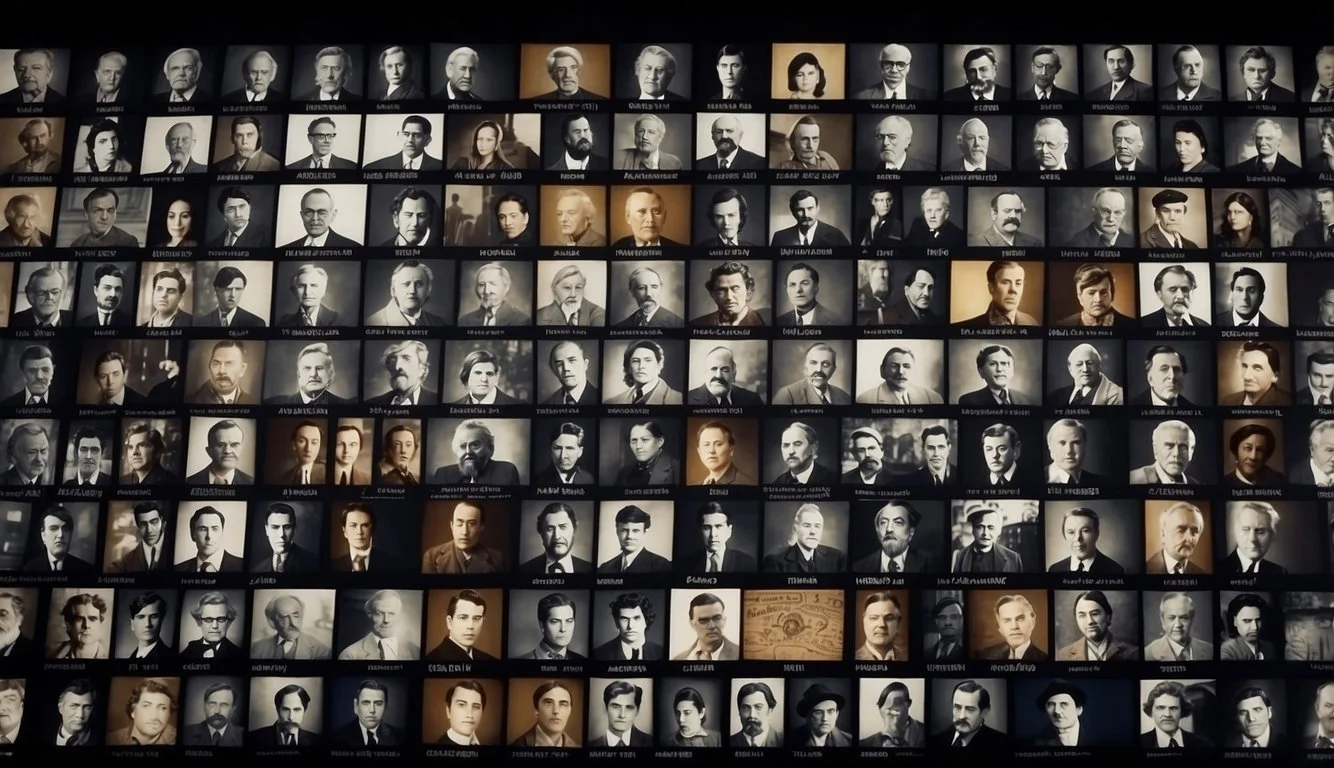Best Documentaries on Revolutionary Movements
Unveiling Radical Change
Documentaries about revolutionary movements offer a captivating lens into the stories of individuals and groups who challenged the status quo. These films shed light on pivotal moments in history, offering valuable insights into the strategy, passion, and perseverance of activists.
For viewers seeking to understand the dynamics of social and political change, these documentaries provide a rich tapestry of experiences and lessons. By exploring various revolutions, audiences gain a deeper appreciation of the complexities and sacrifices involved in the struggle for justice and equality.
1) The Battle of Algiers
Released in 1966, "The Battle of Algiers" is a seminal film depicting the Algerian struggle for independence from French colonial rule.
Directed by Gillo Pontecorvo, it combines the visual aesthetic of a documentary with the intensity of a political drama. This film stands out due to its use of non-professional actors and its on-location shooting in Algiers.
The portrayal is realistic, with a style resembling newsreel footage, which gives the film a gripping sense of immediacy. Viewers are presented with both perspectives: the French military's viewpoint and the Algerian freedom fighters' resistance.
"The Battle of Algiers" has inspired various revolutionary groups globally, including the Black Panthers and the IRA. Its impact reaches beyond cinema, offering a powerful reflection on colonialism, resistance, and the quest for freedom.
This film remains influential, not just as a cinematic masterpiece, but also as a significant historical and political document.
2) The Weather Underground
The Weather Underground is a highly regarded documentary that delves into the radical activism of the 1970s. Directed by Sam Green and Bill Siegel, this film offers an intimate look at the Weathermen, a militant faction of the Students for a Democratic Society (SDS).
Triggered by the Vietnam War and racial injustices, the Weather Underground conducted a series of bombings across the United States. Their targets ranged from government buildings to corporate offices. This documentary effectively captures the intense ideological battles and the revolutionary fervor that defined the group.
Through interviews with former members and archival footage, the documentary portrays the complex motivations behind their radical actions. It also highlights the personal sacrifices and the repercussions faced by these activists.
The Weather Underground does not romanticize its subjects. Instead, it provides a balanced view, showcasing the group's passionate commitment and the tumultuous impact of their activities.
For those interested in the intersection of activism and history, this documentary is a compelling examination of one of the most incendiary radical movements in American history.
3) Che Guevara: Where You'd Never Imagine Him
Che Guevara: Where You'd Never Imagine Him is a documentary that focuses on the life of the Argentine revolutionary Che Guevara. Directed by Cuban filmmaker Manuel Pérez, this film uses a combination of photographs and films to narrate Guevara's story.
The documentary, which runs for just under an hour, gives insights into Che Guevara's journey from his middle-class upbringing to his role as a prominent figure in guerrilla warfare. Pérez attempts to capture the various facets of Guevara's life and his enduring influence.
Although filmed entirely in black and white, the visual presentation complements the historical context. This stylistic choice can resonate with viewers familiar with the mid-20th-century era. However, some critiques suggest that the documentary might lean towards propaganda, aiming to highlight Guevara's significance in prolonging Cuban revolutionary sentiments.
Despite its concise format, this documentary provides a snapshot of Guevara's evolution. From his youthful travels in South America to his rise in the Cuban Revolution, the film portrays his revolutionary zeal. It paints a picture that is both inspiring and contentious, given the different perspectives on his legacy.
Che Guevara remains a complex figure, and this documentary reflects that complexity by not shying away from his controversial methods and ideologies. While it doesn't offer new revelations, it serves as a Cliffs Notes-style summary for those interested in understanding the revolutionary's impact.
4) The Fog of War
"The Fog of War," directed by Errol Morris, provides an in-depth look at the life of Robert S. McNamara, former U.S. Secretary of Defense. Through a series of interviews, McNamara offers insights into his role in pivotal 20th-century conflicts, including the Vietnam War.
The documentary features an original score by Philip Glass, enhancing its compelling narrative. McNamara shares his "eleven lessons," reflecting on the complexities and moral ambiguities of warfare.
Using archival footage and McNamara's candid reflections, the film explores themes of human error, the limits of rationality, and the ethical dilemmas faced by those in power. It won the Academy Award for Best Documentary in 2004. The film's title refers to the uncertainty in warfare, a recurring theme throughout McNamara's career.
5) The Black Power Mixtape 1967-1975
"The Black Power Mixtape 1967-1975" is a landmark documentary that offers an in-depth look at the Black Power movement in the United States.
Directed by Göran Olsson, the film uses archival footage shot by Swedish journalists from 1967 to 1975.
This unique perspective provides an outsider’s view on the social upheavals and revolution during that era.
The documentary examines key figures and events, featuring interviews and footage of activists such as Stokely Carmichael, Angela Davis, and Eldridge Cleaver.
Its visual style combines raw, candid moments with a compelling narrative, capturing the essence of the movement.
The film's narrative is driven by the voices of both the original Swedish journalists and contemporary African American artists and activists.
This dual perspective adds depth and context to the historical footage.
The documentary not only focuses on political activism but also delves into the cultural aspects of the Black Power movement.
"The Black Power Mixtape" has received acclaim for its insightful portrayal and historical significance.
It won numerous awards, including Best Documentary at the Black Reel Awards.
This film stands as a critical resource for understanding the impact and legacy of the Black Power movement.
It continues to resonate with audiences and remains an essential watch for those interested in revolutionary movements.
6) Jérôme Bel: Retrospective Cunnigham
Jérôme Bel is a renowned figure in the contemporary dance scene, known for his innovative approach to choreography. His work often explores the intersection of performance and political expression. One of his noteworthy pieces is "Rétrospective," where he examines his previous creations through a blend of archival footage and live performances.
"Retrospective Cunningham" is a segment within this larger exploration. It reflects on the works and influence of Merce Cunningham, a pioneering American choreographer whose techniques have significantly shaped modern dance.
Bel’s approach involves a meticulous compilation of Cunningham's methods, juxtaposed with present-day interpretations. This method allows viewers to appreciate the evolution of dance through different eras while highlighting Cunningham’s enduring impact on contemporary artistry.
The film offers viewers an opportunity to see how past and present dialogue in the world of dance. By examining Cunningham’s legacy, Bel invites audiences to consider the lasting power of innovative choreography and its role in cultural discourse.
Through "Retrospective Cunningham," Jérôme Bel successfully bridges historical and contemporary dance, demonstrating the fluidity and ongoing relevance of choreographic innovation. This section of the film is a testament to the enduring legacy of Cunningham and provides a compelling look at the dynamics of dance evolution.
7) Revolutionary Dreams
Revolutionary movements often start with a dream, an idea of a better future. Documentaries capturing these movements highlight the aspirations fueling the pursuit of change. One such example is Nishtha Jain's "Farming the Revolution," which explores the deep emotional currents behind India's agrarian protests.
Films like "The Black Panthers: Vanguard of the Revolution" delve into the emergence of revolutionary culture within the Black Panther Party. This documentary illustrates how dreams of racial equality and systemic restructuring galvanized a generation.
Other noteworthy documentaries include "The Revolution Will Not Be Televised" and "Hearts and Minds." These films provide a comprehensive look at how revolutionary dreams inspired collective action in varied contexts.
Revolutionary narratives often intertwine with other social justice causes. The film "13th" explores the ripple effects of the Civil Rights Movement and the ongoing fight against mass incarceration, shedding light on dreams for racial justice.
Each documentary uniquely portrays the relentless pursuit of revolutionary dreams. These films serve as powerful reminders that the quest for change is multifaceted and ongoing.
8) Winter Soldier
Released in 1972, Winter Soldier is a landmark documentary capturing the powerful testimonies of over 100 American veterans. They gathered in a Detroit motel in 1971 to speak openly about the inhumanity and brutality they experienced and witnessed during the Vietnam War.
The film is a poignant reminder of the costs of war, often highlighting repressed and traumatic memories. The Winterfilm Collective, a dedicated group of filmmakers, produced this documentary to ensure these voices were heard.
Winter Soldier covers stories of real soldiers sharing their firsthand accounts. Their testimony confronted widespread denial and sought to bring truth to light. Despite its historical significance, the documentary faced media neglect and political undermining at the time.
Critical reception of Winter Soldier acknowledges its value as an unfiltered portrayal of the Vietnam War's harsh realities. It stands as a vital piece in documenting the counterculture era and the profound dissent against the war. The film remains relevant, shedding light on national and institutional repressions through the veterans' harrowing stories.
9) All Power to the People!
"All Power to the People!" is a 1996 documentary directed by Lee Lew-Lee. The film explores the origins and impact of the Black Panther Party. The Black Panther Party was founded in 1966 in Oakland, California, by Bobby Seale and Huey P. Newton.
Through interviews and archival footage, the documentary provides insights into the organization's key figures and events. It highlights the efforts and challenges faced by the Black Panther Party. Topics include the FBI's COINTELPRO, which aimed to undermine revolutionary groups.
The film also briefly touches on related movements such as the American Indian Movement and the Black Liberation Army. These groups shared similar goals but faced unique struggles.
"All Power to the People!" examines broader issues of race and economic inequality. It presents the Panthers' revolutionary agenda and social programs, aimed at improving the lives of African Americans.
Running for 102 minutes, this documentary is notable for its comprehensive coverage. It addresses various methods used to disrupt and disband the Black Panther Party. The film serves as an important resource for understanding both the historical context and the lasting influence of the Black Panther Party. Despite the controversies, the documentary presents a clear narrative of their contributions.
10) Noam Chomsky: Rebel Without a Pause
This 2003 documentary, directed by Will Pascoe, centers around Noam Chomsky, a renowned linguist, intellectual, and activist.
Chomsky engages in discussions that touch on significant global events such as the War in Iraq and the September 11th attacks.
The film showcases his critical views on media manipulation and control, which play a vital role in shaping public perception and policy.
Through both large public forums and smaller, interactive settings, Chomsky delves into social activism and the fight against fear.
He examines American foreign policy, highlighting its impact across the world.
The documentary also features Carol Chomsky, providing additional personal context.
"Noam Chomsky: Rebel Without a Pause" offers an insightful look into his thoughts and reflections on pivotal issues.
Historical Impact of Revolutionary Documentaries
Revolutionary documentaries shape societal views and serve as vital educational tools by examining historical events through various lenses.
Influence on Public Perception
Revolutionary documentaries have a substantial effect on how the public perceives historical events. For example, The Black Panthers: Vanguard of the Revolution brings attention to the Black Panther Party's contributions and struggles, challenging preconceived notions.
Films like 13th (2016) reframe understandings of systemic racism and mass incarceration. They reveal the deep societal roots of these issues, prompting viewers to reconsider accepted narratives.
These documentaries often spark conversations, leading to activism. The nuanced portrayal of events encourages the audience to critically engage with history, leading to a more informed and empathetic society.
Role in Education
Documentaries about revolutionary movements play a critical role in education. They are frequently used in classrooms to bring historical events to life. 1917: Why The Russian Revolution Matters is an example that elucidates the complex factors leading to the Russian Revolution.
By providing visual and emotional context, such documentaries make it easier for students to grasp the significance of historical events. Films like I Am Not Your Negro are instrumental in teaching key moments of social and political change.
They serve as supplementary resources that can deepen understanding beyond textbooks. Educators utilize these films to highlight various perspectives and foster critical thinking among students.
Themes Explored in Revolutionary Documentaries
Revolutionary documentaries often delve into the topics of political change and human rights movements. They highlight key moments of social upheaval and struggles for justice.
Political Change
Political change is a central theme in many revolutionary documentaries. These films frequently explore radical shifts in government structures, individual contributions to political movements, and the strategies used to overturn established systems. In The Black Panthers: Vanguard of the Revolution, viewers are taken through the rise and influence of the Black Panther Party, showcasing their impact on American politics during the 1960s and 70s.
Films like 13th focus on the legacy of systemic racism and its links to the prison-industrial complex, examining how historical policies shape contemporary political realities. 1917: Why The Russian Revolution Matters dissects the conditions that led to the Bolshevik Revolution, providing insights into how economic disparities and political repression can fuel revolutionary movements. These documentaries educate viewers on the inner workings and catalysts of political upheaval.
Human Rights Movements
Human rights movements form another crucial theme within revolutionary documentaries. They cover battles for equality, freedom, and basic human dignity across different eras and societies. I Am Not Your Negro highlights the Civil Rights era in the United States, drawing from the words of James Baldwin to paint a vivid picture of the fight against racial injustice.
The film How to Survive a Plague documents the AIDS crisis and the grassroots activism that demanded government action for those affected. Similarly, Fundamental: 5 Films About Fighting for Gender Justice provides narratives of global struggles for women's rights and gender equality. These films encapsulate the spirit of resistance and the relentless pursuit of human rights, showcasing various forms of activism and their impacts.
Notable Directors and Their Contributions
Influential figures like Ken Burns and Michael Moore have significantly shaped the documentary genre. Their works have focused on American history and social issues, delivering insightful and thought-provoking narratives about revolutionary movements and events.
Ken Burns
Ken Burns is renowned for his extensive work in historical documentaries. His distinctive style often features period photographs and a narrative that deeply engages viewers.
Burns directed The Civil War, a groundbreaking series that delved into the complexities and human stories of the American Civil War. Though not directly about the American Revolution, his approach influenced many documentaries on revolutionary movements across the globe.
Burns' attention to detail and use of primary sources have set standards in historical documentary filmmaking. His series on the Vietnam War explores revolutionary fervor and its ramifications, resonating with themes of rebellion and resistance. His ability to weave personal tales with broader historical context makes his documentaries deeply resonant.
Michael Moore
Michael Moore is famous for his provocative style and focus on contemporary societal issues. His documentaries often critique government policies, corporate practices, and social inequalities.
In Bowling for Columbine, Moore tackles gun violence in America, indirectly touching on the revolutionary spirit driving change in gun laws and activism. Fahrenheit 9/11 scrutinizes the U.S. government's response to terrorism, questioning the roots and consequences of political decisions in a modern revolutionary frame.
Moore's Where to Invade Next and Capitalism: A Love Story examine economic and social systems that inspire revolutionary thoughts and actions. His documentaries are known for their compelling blend of humor and hard-hitting critique, engaging a wide audience and sparking conversation around urgent social issues.


